Team Experience is discussing the various Oscar categories. Here's a particularly volatile race given that BAFTA, CCA, and ACE Eddie Awards all chose different winners.
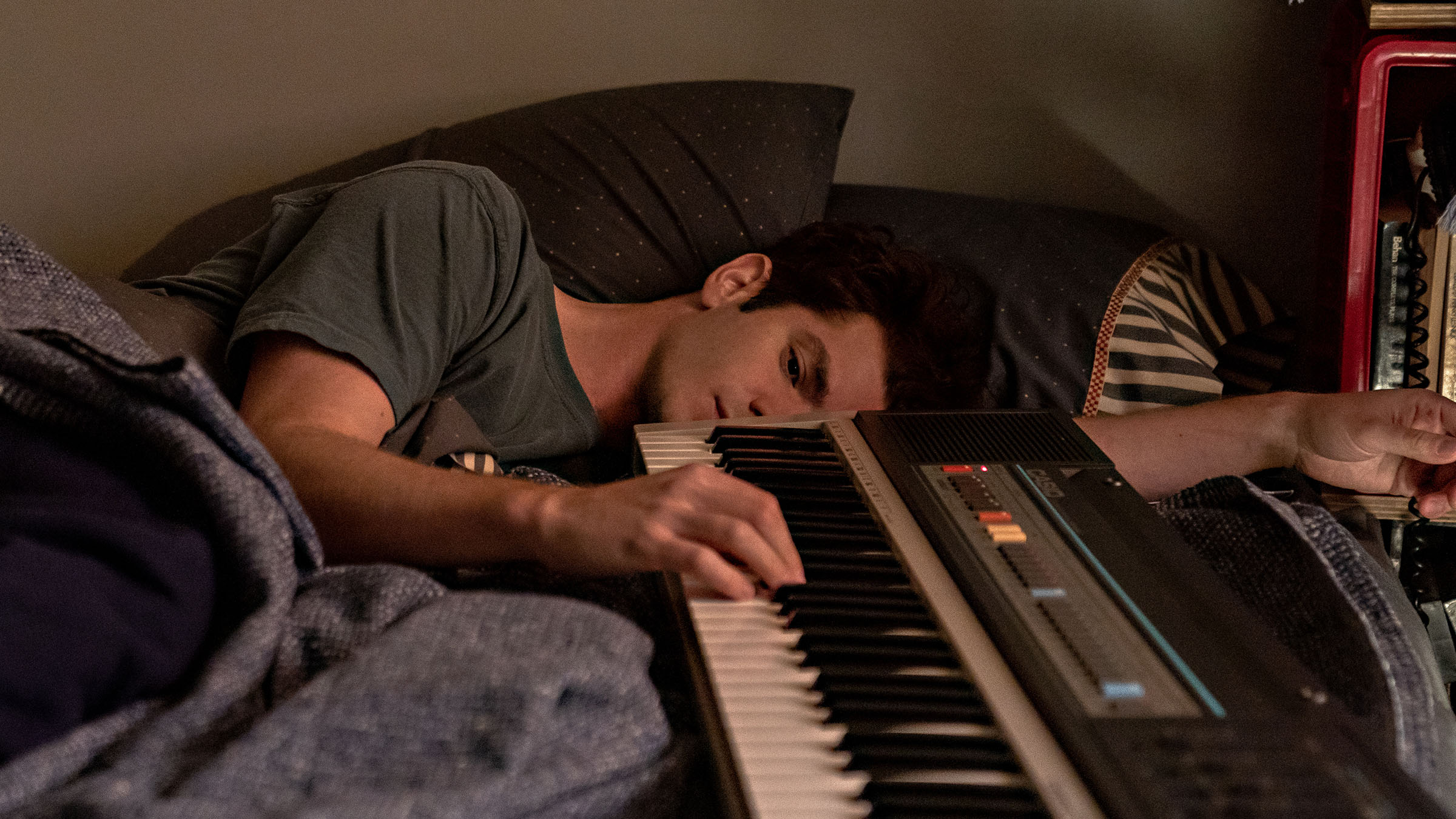
ERIC BLUME: Tim and Carlos, we're the lucky gang to discuss the Oscar nominees in the Best Film Editing category. This year our five nominated films are:
- Don't Look Up
- Dune
- King Richard
- The Power of the Dog
- tick, tick...Boom!
Last year's win for The Sound of Metal was uniquely exciting as it was an out-of-the-box winner in terms of its smallness (this award often goes to "big" movies). Maybe that means people are thinking a bit more carefully about this category? I bring this up in hopes there might be some genuine support for my favorite pick of this bunch, which is the editing duo for tick, tick...Boom...
The way this team seamlessly bridges the musical and "book" elements of the film is pretty breathtaking. They keep the movie flying at a fierce clip, but they know when to slow things down too. Not only is each musical sequence constructed beautifully, but they go in and out of "worlds" with perfect finesse, so everything feels in the same creative universe. Their work gives the film propulsion but also tenderness. They place us firmly in Jonathan Larson's mind, and they have an innate sense of what to show you during the musical numbers to keep things thrilling. You feel the joy in their editing. You guys can now tell me there is no realistic shot of this winning the Oscar, of course, but I had to fight for it. Carlos, what is your favorite entry in the race, and why?
JUAN CARLOS: I also love the editing in tick, tick... BOOM!. It's that kind of energetic editing that is guided with rhythmic precision and that makes sense within the context of the film, particularly of its central performance from Andrew Garfield. I'd even go as to say that the editing helps Garfield's work a lot in making his bursts of creativity feel tactile. This is my first encounter with anything related to this musical, but the editorial work succeeds in bringing Larson's essence (as I knew from the film) with vigor and gusto. I love it. Also, I could see the film going all the way the same way The Girl with the Dragon Tattoo did in 2011.
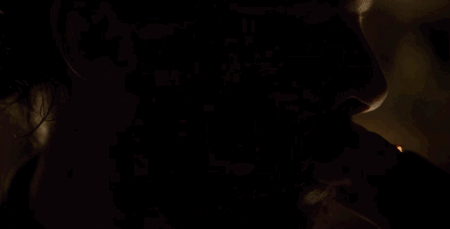
However, my favorite from the bunch is actually Peter Sciberras's work in Jane Campion's The Power of the Dog. It's one that always cuts with vivid intention. Part of what makes the film work extremely well is its negotiation between what we see and what we don't. With Sciberras's work, that dance is achieved with sharp calibration. Each cut feels either like a setup, a counterpoint to an expectation, a demonstration of a relationship dynamic, or a puzzle piece that would return later in the film. As I recall it, no cut ever felt unmotivated.
Like tick, tick...BOOM!, rhythm is one of the film's strengths. I distinctly remember the scene where Phil taunts Rose using his banjo playing. Focused on Kirsten Dunst and Benedict Cumberbatch, the scene is cut like a fight scene from a Western but replace the guns with piano and banjo. Like when cowboys circle around an open space, waiting for the first person that pulls their gun. Space, tension, and hostility encapsulated in the cutting. It strengthens Phil's presence and adds more to Cumberbatch's intimidating on-screen presence. And even when the camera is on Dunst, the cutting makes it sure that Phil dictates the pace of that scene. It's thrilling just thinking about that scene. That's my favorite from the bunch. Now I'm excited to hear yours, Tim.
TIM: I'm not going to be so un-fun as to throw water on the tick, tick... BOOM! party, so I'll merely say that of the year's big musicals, I would myself have voted to nominate West Side Story. But that's neither here nor there: I'm much happier seconding Carlos that The Power of the Dog has some absolutely phenomenal, airtight cutting. I loved it so much that the very first thing I did when it was over - I mean that entirely literally - was to look up Sciberras on IMDb, because his name was brand-new to me, and I feel like I was instantly put on notice that this was a major new editor whose name I was going to have to be on the alert for in the future. It's such a precise film, not just about when to shape our perception by deciding what images to cut to, but knowing when not to cut, when to just let the characters linger in their uncertainties (there are some great moments for Kirsten Dunst that do this). And I'll also second Carlos on the film being great at tension: the banjo/piano scene is great, but I'm also thinking of the way the film lets us find out what happened to the rabbit.
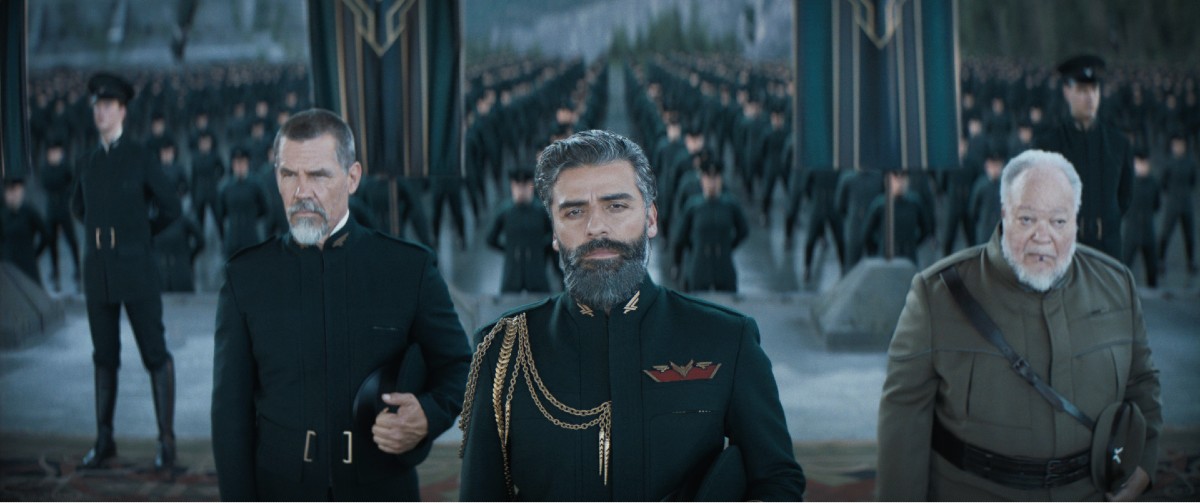
Even having said all of that, is it my favorite of the nominees? I'm having an extremely hard time deciding, honestly. On the one hand, the flawless, diamond-cut precision of The Power of the Dog. But on the other hand, and I think I honestly might have to give it the edge, I was completely swept away by what Joe Walker did with Dune. Partially, this is undoubtedly the grading-on-a-curve of low expectations: I'm so accustomed to big-budget Hollywood popcorn movies having such illegible, whirlwind-paced action scenes that I consider it a triumph just to know who the good guys are. And Dune's action scenes are downright classical in how well they assemble coherent spaces in the midst of chaos and movement.
But I'm also impressed by how well it controls shot scale: the film lives and dies on its movement between grandiose wide shots and closer shots isolating the humans and picking out how they're observing and contemplating those wide spaces. The story of Dune is about galactic-scale events being filtered through individuals, and I think Walker did an excellent job of capturing that visually. Plus, I'm terribly fond of how it works rhythmically; the film wants to be a long, weighty epic with the feeling history and politics, but it also has to be watchable, and I think the editing strikes a nice balance of moving us briskly through individual beats while letting whole scenes feel suitably imposing.
That leaves two films none of us picked as a favorite: Eric, did anything leap out to you, good or bad, about either Don't Look Up or King Richard?
ERIC:I couldn't agree more with both of you about Sciberras' work in The Power of the Dog. It's masterful and as you've both pointed out, interesting and surprising work, and you get the feeling that he and Campioin worked together very closely, with intense deliberation to enhance plot and character moments. You've both spoken so eloquently to it so I'll just agree that it would be a gloriously worthy winner.
As would Dune. Yes, the editing contributes hugely to Villeneuve's vision in that the film is both epic and small at alternate moments. Walker makes sure not to overcut in those scenes where the weighty, dense elements of Herbert mythology kick in...he slows you down to try to take in all those rather boring details...but he and Villeneuve shape those tricky scenes so they're not belabored, either. And agreed one hundred percent on the shot scale...one of the grand pleasures of Dune is the thrill of colossal wide shots that bring texture and sensuality to the picture in ways we don't normally see. Knowing when to hold and use those huge wide shots, while always staying on the faces of Chalamet and Ferguson for the human element, is a superb achievement from Walker.
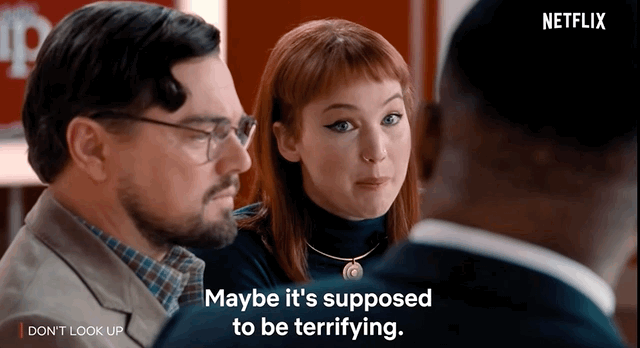
As for Don't Look Up, I'd say that nomination is generous. The film is middling as a whole, so I guess one could argue that the editing is one of its strong suits, especially because Adam McKay has the actors do so much improv, and trying to put improv together and have it all feel like a coherent, happened-in-real-time way is no easy feat. Comedies (although I'm being generous calling Don't Look Up a comedy) often go unnoticed, when editing comedy s incredibly difficult. So while I wouldn't have granted a nomination to this film, it's nice to see this kind of acknowledgement.
I'm on record numerous times about my dislike for King Richard, so I'm bewildered by its placement here. I suppose this nomination is for the editing of the tennis sequences? Which, by the way, aren't incredibly difficult...you have to edit a ball moving from one person and follow it to the other person. I'm semi-joking of course, but I'll leave it to you one of you to defend King Richard!
CARLOS: I'll get there in a minute. But first with Dune. Since I'm uninitiated with the source material or the previous iteration, so I was, at the back of my head, expecting to be detached with the film for the most part. What I got was something cerebral without losing sight of its emotional immediacy. Devoid of cheap tricks, the film keeps its momentum going through its methodical calculation of shot length. Battle scenes map out geography and power relations clearly through its succession of shots. The film's immersive quality is not just by the world it has built visually, but by how the editing has pieced these shots together to, in the closest possible way, make us feel the dangers and mystique of its milieu.
As for Don't Look Up, I actually do not mind this nomination. I must confess that I have already warmed up to Hank Corwin's collaborations with Adam McKay. It took me a while to grasp the rhythm of The Big Short and I loved the sensorial aggressiveness of Vice. Comparing it to these two, Corwin's latest work feels more measured, relaxed even. The occasional frantic energy of the cutting is still there, the way it taunts the audience too. Its cutaways make sense because the story has to expand while the film remains solely focused on its characters, mainly the two leads. The dinner sequence during the film's climax is an example of that perspective. While Corwin and McKay have a cinematic language of visual chaos in their collaborations, this one feels the most clear-eyed. However, and I may be in the minority, I actually wish the film went even harder towards its confrontative energy. More disruptive, more merciless. Own the film's spirit even more.
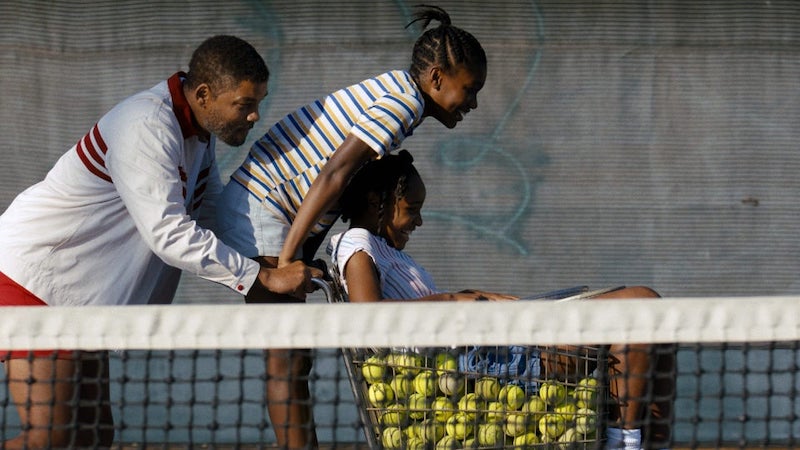
And King Richard... At least the editing is not bad? I did try to look closely while I was rewatching. The film moves at a well-decided pace, if not something that challenges the audience to engage beyond the perfunctory. The performances, particularly Aunjanue Ellis, are given enough breathing room to find the emotional arcs of each scene without obstruction from much cutting. The tennis sequences feel balanced. The film's top priority is always finding the emotional component of each game, not letting the scenes be reduced to a mere display of kineticism detached from the characters involved. That's a sports film trap that the film avoids multiple times. But that's as far as I could go in defending this nomination. At least it got in over Belfast!
What's your take, Tim?
TIM: "At least this got in over Belfast" is quite literally the only thing that can make me feel good about the King Richard nomination (and I am not prepared to even start thinking about its inexplicable ACE Eddie win earlier this week). I agree that it's not "bad" in an sense that's worth being grouchy about. It's perfectly functional; but so are most movies that are produced by professional filmmakers with big budgets! It's almost conspicuous how not special the editing is in the tennis scenes: I take your point, Carlos, that it's favoring character psychology over splashy kineticism, and I think that's a reasonable choice. But in the process, it's robbing the game itself of all its energy and movement, and given that the whole narrative is built on the extraordinary tennis skills of Venus and Serena Williams, I'd like to see at least some virtuoso editing of tennis games to sell the idea of the virtuoso tennis players. It's simply not exciting to watch, and without that, so much of the film falls flat. Obviously, from the title on down, this isn't really Venus & Serena's story, but their dad's. Still, come on now.
Don't Look Up is an interesting counterbalance, because in truth I don't care for what it's doing - but at least it's doing something, in its attempts to overlay some twitchy, hostile rhythms and snarky contrasts onto the footage. If it oversteps in its attempts to add punchy, ironic comedy to the proceedings (and I think it does, though less so as it goes along), at least Corwin is genuinely attempting to create a parallel experience to the screenplay and not simply stitching scenes onto its skeleton. I would love if we could consider that the absolute minimum that we should expect of our editing, but that's obviously not the case. Indeed, as King Richard demonstrates, we don't even need that in order for our editing to receive the industry's highest level of recognition. So even if I don't enjoy what Corwin is up to here, I appreciate it.
Speaking of films we appreciate, I know we're here to talk about the actually existing nominees, but I just have to throw out the question, because it's one of my perennial favorites: what do you wish had been here instead?
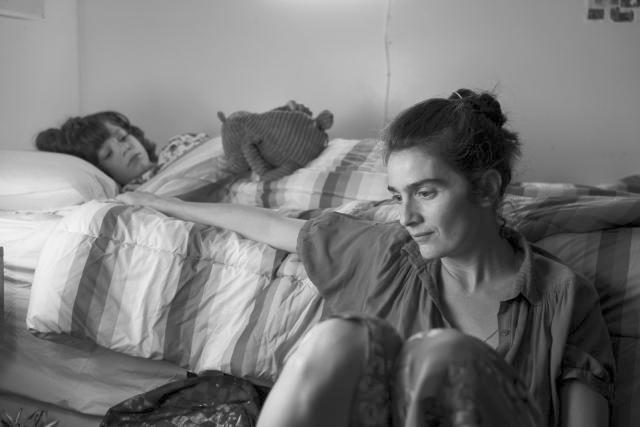
ERIC: All of my choices are films that were never on the radar for this award, but which I thought contained really smart editing work. I loved Jennifer Vecchiarello's cutting in C'mon, C'mon...all these sustained images with gorgeous sound bridges carrying you over into the next scene, and not one cutesy shot of young actor Woody Norman. Even the phone conversations were cut interestingly! I also admired Pedro Almodóvar and Teresa Font's continual return to those supertight framings of Penelope Cruz's face: Parallel Mothers is Cruz's face, and there aren't many actors who can take to framing like that.. .Font knew it and really pushed it through the film. Similarly Sebastian Sepulveda's editing of Kristen Stewart's performance in Spencer, is a blend of distanced long shots and confidently held medium shots with claustrophic close-ups to let us know where Diana always is emotionally. And Nightmare Alley's sharp cutting to alternately highlight the production design, character moments, and narrative tension felt just right to me, while at the same time editor Cam McLauchlin managed to find an original rhythm not reflective of other noirs.
CARLOS: Seconding your mentions on Parallel Mothers and Spencer. In my opinion, both are adventurous choices that would have made for exciting additions in this category. From an acting perspective, Cruz and Stewart benefited greatly from the editing style of their respective films in even fleshing out what they are already doing on camera. It's thrilling.
I just want to mention a few more that stuck with me: Luca (Catherine Apple and Jason Hudak) manages to flesh out the excitement of juvenile blossoming of the leads' friendship with vibrant pacing, Titane (Jean-Christophe Bouzy) strikes the balance between threatening imagery and off-kilter tenderness with meticulous temporal control, Passing (Sabine Hoffman) betrays its quiet facade through thoughtful build-up that recontextualizes the film's silence with unsettling montage, The Lost Daughter (Affonso Gonçalves) evokes the ever-shifting psychological state of its lead character with unpredictable energy, Flee (Janus Billeskov Jansen) realizes the narrative's wallop with its strategic balance of emotional beats, and Mass (Yang Hua Hu) is a masterclass in visualizing character detail, relationship dynamics, and dramatic tension through its lacerating cutting. Again, a film where every cut is motivated.
This year has an embarrassment of riches in this category. What are your personal picks, Tim?
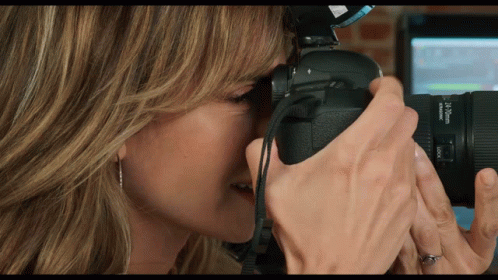
TIM: Let's make it three-for three: Parallel Mothers and Spencer would both be pretty high on my favorites list, for all the reasons you've both said. I'm limiting myself only to things we can assume the Academy voters since otherwise I'd want to talk about the eight-hour art film The Works and Days (of Tayoko Shiojiri in the Shiotani Basin) -- so I would include The Tragedy of Macbeth, which couldn't have been too far outside of the Best Picture race. I think the cutting, which Joel Coen executed himself, alongside Lucian Johnston, is a really perfect match for the graphic, Expressionist angularity of the cinematography and production design. The whole film is somewhat predicated on the idea of these environments as geometric shapes, and I enjoy that the editing manages to create a cohesive sense of space while preserving the isolated feeling of every composition. And I think the editing is a huge part of the reason that Kathryn Hunter's performance as the Weird Sister(s) came across so well. And if we want to go all the way from super-flashy editing down to some very restrained, almost invisible cutting to long takes, I thought Hayedeh Safiyari did absolutely phenomenal work controlling the rhythm of A Hero, Asghar Farhadi's latest, which I'm still very annoyed missed out on Best International Film. But that's a different conversation. It's very carefully interrupting long conversations by holding off until just the moment that the energy in the conversation turns, and it's great at doing one of the things we forget that editors need to do well: knowing when to hold onto a moment, not cutting until it's had a chance to fully sink in and resolve.
But back to the five actual nominees!
I think at this point it's pretty clear what we all want to win, but of course it's never about what we want. So now the big question: which nominee do you think is actually going to win? I'm actually having a really hard time landing on a final prediction, so I hope one of you is able to convince me. And hey, we haven't even looked at the elephant in the room: Best Editing is one of the eight categories that's going to be announced at a smaller, separate ceremony before the main broadcast. I don't know about you two, but I have some Definite Thoughts about that.
ERIC: I think the winner will be between Dune and The Power of the Dog...in the end, probably Dune? I'm disgusted at the movement of eight categories to what is absolutely lesser status, no matter what the Academy tries to tell us. If all the actors banded together and said, "we're not showing up unless you put them back in there" they'd be forced to change it back...something I thought for sure would happen, but there's been no movement towards it. Carlos, what are you thinking in terms of final winner and the lack of screen time for this award?
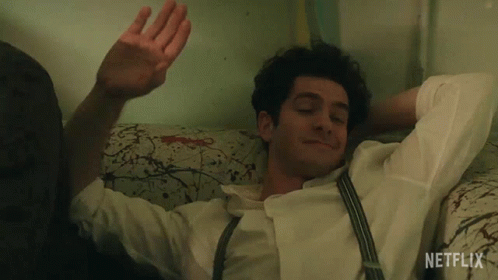
CARLOS: Common sense makes me think it's Dune because I could see it as the tech categories sweeper, in the same vein as a Mad Max: Fury Road or a Gravity. Also, the correlation with whichever wins Sound is still going strong (last Film Editing winner that didn't win either Sound categories was Argo). Dune is in a great position to win Sound so for people who use stats as predictors, this looks good as a prediction.
Second place is probably King Richard because of the ACE win. Third for me is tick, tick... BOOM!; with how flashy the editing is (and with the assumption that it came close to a Picture nomination), it could win like The Girl with the Dragon Tattoo. Fourth is The Power of the Dog since it's the Best Picture frontrunner and it could easily go big with its wins. Fifth is Don't Look Up - if it had done better, I would have had it higher in the rankings.
At this point, I have no energy with their decision to not include eight categories in the live broadcast including Film Editing. I'm not even gonna use the "as a film editor" card in defending this. As an institution that prides itself as upholding the importance of cinema, it is very telling of the Academy's principles that they are willing to sacrifice their own members' opportunity to have this moment of recognition just to please some outside force that, for some reason, thinks cutting these categories will solve their ratings issue. I'm not even angry anymore. The Academy just showed who they really are.
Sorry for being a downer. How about you, Tim?
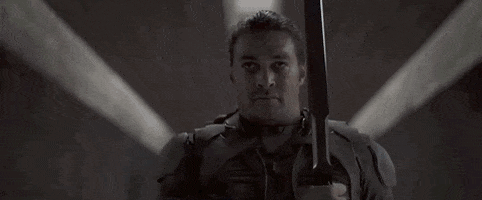
TIM: Hey, nothing wrong with being a downer, it's a pretty dismal, insulting thing they're doing, and if it doesn't get reversed - as Eric mentioned, I think it's surprising that there seems to be so little concentrated pushback, so I assume the window for reversing it is closing down - this will probably end up being the first year I don't watch the ceremony since I started back in 1992. Because seriously, screw that. It's the one night the world is meant to be exposed to all the moving parts of the filmmaking process, and seeing that pulled away makes me irritable as hell.
That being said, it's a little bit of an anticlimax to switch to my predictions: I think I'm sticking with Dune. Being a big, elaborate, kinetic action movie has to give it a leg up, and I'm just still not seeing what in King Richard makes any one want to give it this award. Thanks for chatting, gentlemen!
Now it's your turn. What are YOU rooting for and what do you think will win?
RELATED:
Oscar Volley - Best Animated Feature
Best Film Editing Oscar Chart
Nathaniel's Editing Medalists